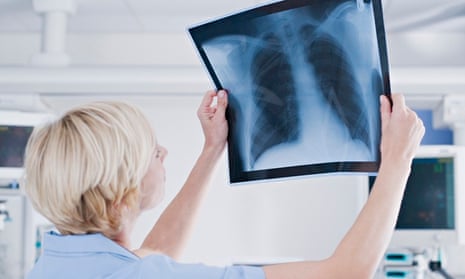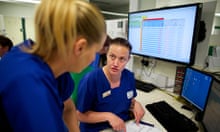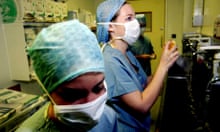I am a diagnostic radiographer; one of the allied health professions often forgotten by the public and media in a world where the NHS seems to consist of only doctors and nurses. Diagnostic radiographers often see tens, if not hundreds, of new patients each day. We get very little time with our patients; it can take as little as two minutes to complete a chest x-ray. During this time, we are expected to build a relationship of trust with our patient to enable us to get the best possible image while ensuring that the patient is cared for. It is a difficult balance to achieve but one that is vitally important. That two minute x-ray could be a life changing event; something that is easy to forget when you are x-raying the chests of over 100 people each day.
It isn’t as easy to forget for student radiographers though. I am currently a senior lecturer in diagnostic radiography and my students spend 50% of their three-year degree on placement in imaging departments. First year students generally aren’t used to the healthcare environment and tend to view it as a member of the public would. This means that they notice things that radiographers, through familiarity, no longer see. Students should, therefore, be used as an early warning system – someone on the inside looking with an outsiders eyes.
Sadly, this isn’t happening. The stories that I hear from my students when they return from placement at any of the 15 NHS trusts in our patch have made me both reflect on my own practice and want to weep for my profession. There was the student who told me about a patient for a scan who wet the bed while in the waiting area but was moved to and from the scan table and back to the ward on those same wet sheets. She did try to change the bed sheets but was sharply told that wasn’t a radiographer’s job. How is a first year student on a first placement supposed to deal with that?
One student spent 45 minutes comforting a patient who had just received a cancer diagnosis, after the radiographer ignored the patient’s obvious distress, only to be given poor feedback because he wasn’t available. Then there are the radiographers who tell students that the six Cs of care aren’t for radiographers and that if they want to care they should become nurses.
Not all radiographers are like this; I also hear stories from students of radiographers showing incredible compassion and courage in difficult situations. These radiographers become great role models for the students.
I know this problem isn’t unique to radiography. There are practitioners showing lack of compassion and students noticing it in all healthcare professions. It is very difficult for me to do anything about the reports I get back from students about what they have seen; it is often weeks after the event or students don’t want to take the report any further.
So why don’t students speak out more when they see this happen? In the hierarchical NHS, students really are at the bottom of the pile with very little voice. Student concerns are often dismissed – how can they know better than experienced staff? They are all aware of needing to get a job when they finish their degree and don’t want to be known as a trouble maker. Students who have expressed legitimate concerns have been victimised on placement and found it hard to get a job locally once they qualify. The blame culture of the NHS means that the radiographers identified by students’ concerns aren’t treated with compassion leading to resentment rather than learning.
It is time that the NHS acknowledged the contribution that students can make to improving services for both patients and staff by providing a safe, supportive environment that enables them to escalate concerns without fear of jeopardising their future career.
If you would like to write a blogpost for Views from the NHS frontline, read our guidelines and get in touch by emailing healthcare@theguardian.com.
Join our network to read more pieces like this. And follow us on Twitter (@GdnHealthcare) to keep up with the latest healthcare news and views.






Comments (…)
Sign in or create your Guardian account to join the discussion